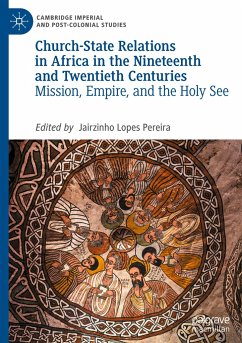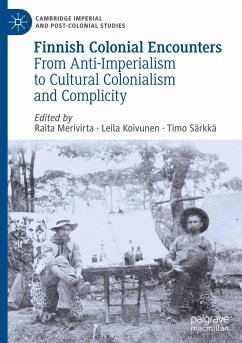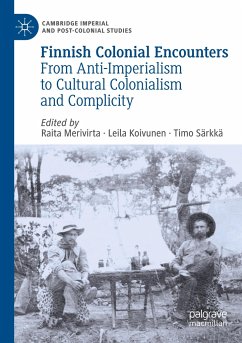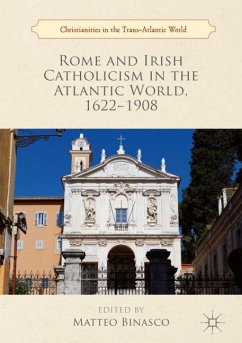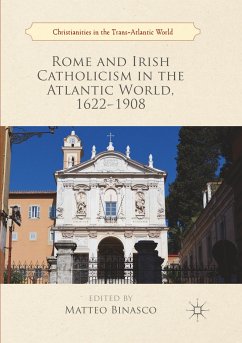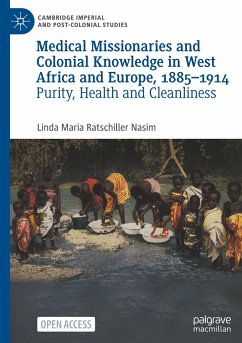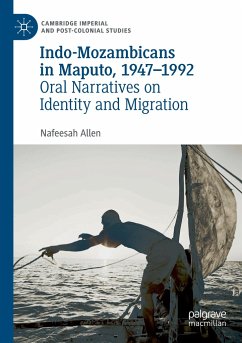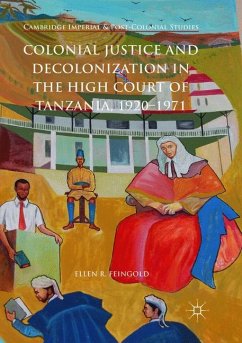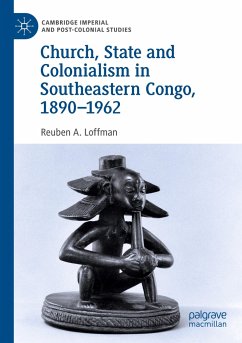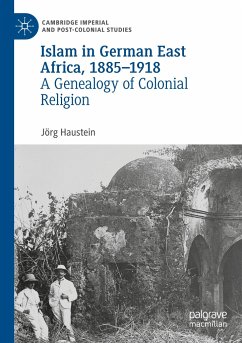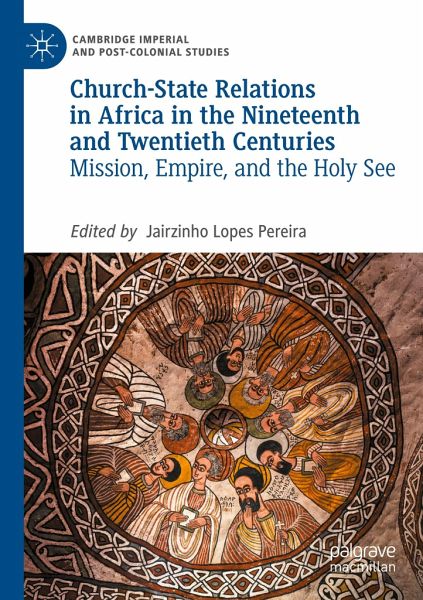
Church-State Relations in Africa in the Nineteenth and Twentieth Centuries
Mission, Empire, and the Holy See
Herausgegeben: Lopes Pereira, Jairzinho
Versandkostenfrei!
Versandfertig in 6-10 Tagen
83,99 €
inkl. MwSt.

PAYBACK Punkte
42 °P sammeln!
This edited collection examines church-state relations in the European colonies in Africa during the late nineteenth and twentieth centuries. The chapters focus on the period stretching from the most agitated stages of the 'scramble for Africa' during the 1870s and 1880s, to the great wave of independence of African colonies in the 1950s and 60s, and culminates in a discussion of colonial legacies during its aftermath. The Church and the State, although often having conflicting goals and agendas, walked hand-in-hand throughout the entire colonial period, with 'imperialism of the spirit' being ...
This edited collection examines church-state relations in the European colonies in Africa during the late nineteenth and twentieth centuries. The chapters focus on the period stretching from the most agitated stages of the 'scramble for Africa' during the 1870s and 1880s, to the great wave of independence of African colonies in the 1950s and 60s, and culminates in a discussion of colonial legacies during its aftermath. The Church and the State, although often having conflicting goals and agendas, walked hand-in-hand throughout the entire colonial period, with 'imperialism of the spirit' being inconceivable without the groundwork of Catholic missionaries. Exploring the major domains that determined the course of church-state relations in the colonies, the authors analyse relations between the Holy See and the colonial powers, and between national Catholic authorities and secular authorities, as well as the international order and socio-political developments in the metropoles.They argue that interactions between state and church in Africa's European colonies were contingent upon the complex dynamics of interests that both secular and ecclesiastical entities endeavoured to preserve or promote. With a particular focus on the Belgian and Portuguese colonies in Africa, this book provides useful reading for scholars of European imperial history and ecclesiastical history.



